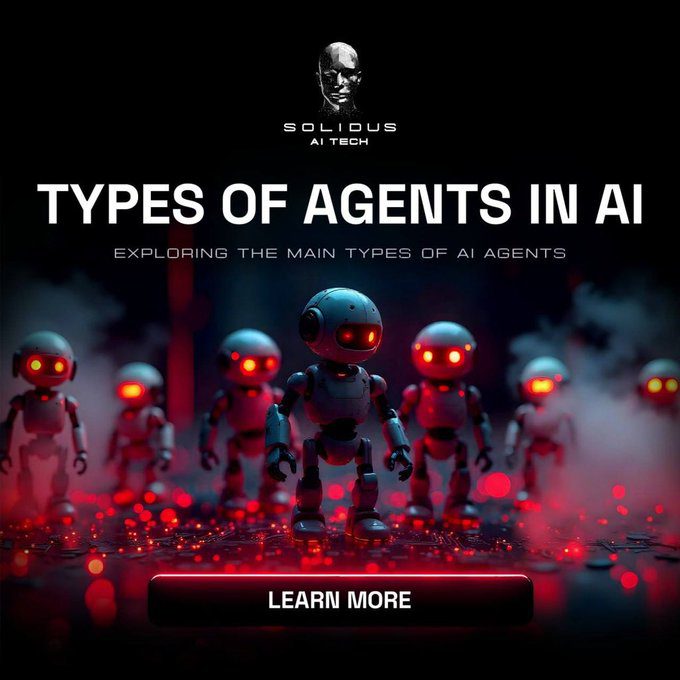What Exactly is an AI Agent?
Artificial Intelligence (AI) agents are intelligent software systems designed to perceive their environment, reason about it, make decisions, and take actions to achieve specific objectives autonomously. These agents use various AI/ML techniques such as natural language processing, machine learning, and computer vision to operate in dynamic domains, autonomously or alongside other agents and human users. For a detailed understanding, refer to What exactly is an AI agent?.
Types
Understanding the different types of AI agents can provide insight into how machines process information and make decisions. Here are the five main types:
Learning Agents
Learning agents are designed to improve their performance over time by learning from their experiences. These agents use machine learning algorithms to adapt to new situations and improve their decision-making capabilities. They are crucial in dynamic environments where conditions can change rapidly.
Goal-Based Agents
Goal-based agents operate by considering their goals and the actions required to achieve them. These agents use planning algorithms to determine the best sequence of actions to reach their objectives. They are particularly useful in complex environments where multiple steps are needed to achieve a goal.
Simple Reflex Agents
Simple reflex agents respond directly to stimuli from their environment without considering the broader context. They operate based on a set of predefined rules and are suitable for environments where the same action is always appropriate for a given situation.
Utility-Based Agents
Utility-based agents evaluate the utility or value of different actions and choose the one that maximizes their overall utility. These agents consider both the goals and the potential outcomes of their actions, making them more flexible and capable of handling trade-offs between different objectives.
Model-Based Reflex Agents
Model-based reflex agents maintain an internal model of their environment, allowing them to consider the broader context when making decisions. These agents use this model to predict the outcomes of their actions and choose the best course of action based on these predictions.
The Evolution and Future
As AI technology continues to advance, the capabilities of AI agents are expected to grow significantly. According to OpenAI, AI agents are evolving towards achieving Artificial General Intelligence (AGI), which would enable them to perform any intellectual task that a human can do. This evolution involves incremental improvements in reasoning and problem-solving capabilities.
Applications
AI agents are being used across various domains to automate tasks and improve efficiency. Some of the key applications include:
- Customer service
- HR
- IT support
- Task automation
- Potentially any task a human can do digitally
For instance, Google Cloud has developed AI agents tailored for enterprise functions, streamlining processes for rapidly building AI agents and providing a centralized directory for easier management and access.
Challenges and Ethical Considerations
Despite the promising advancements, there are several challenges and ethical considerations associated with AI agents. These include:
- Job displacement
- Potential for bias in AI decision-making
- Need for clear ethical guidelines and oversight
As highlighted by experts like Rudina Seseri and Rodney Brooks, it is crucial to address these challenges to ensure the responsible development and deployment of AI agents.
Related Articles
- How AI Agents are Revolutionizing Smart Work
- Bots vs. Agents: The Autonomous Revolution in AI and Crypto
- What You Need to Know About Artificial Intelligence
- Top 5 AI Skills for Future
- Top 5 AI Tools for Teachers
Looking for Travel Inspiration?
Explore Textify’s AI membership
Need a Chart? Explore the world’s largest Charts database
